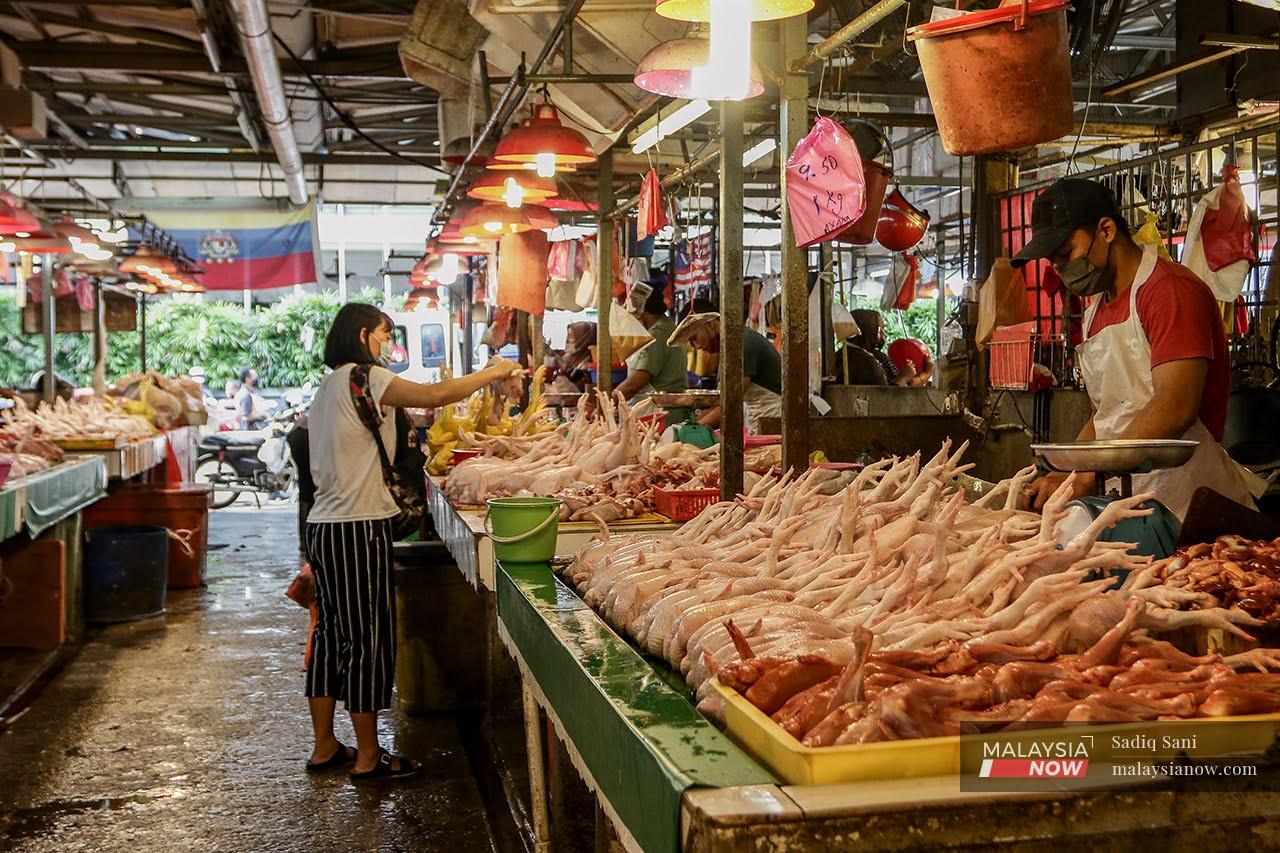Ban on chicken exports as govt adds wheat to AP-exempt list
This follows the move last week to scrap approved permits for importing items such as round cabbage, old coconuts, chicken and milk to secure food supplies and curtail rising prices.
Just In
Prime Minister Ismail Sabri said today the Cabinet had agreed to abolish the approved permit requirement for importing wheat and that Malaysia would halt exports of 3.6 million chickens a month from June until production and prices stabilise.
AP requirements for poultry including for whole chicken and parts meanwhile will be abolished to increase opportunities for importers to provide more sources of supply.
The government last week scrapped the approved permits for importing round cabbage, old coconuts, chicken and milk in a bid to secure food supplies and curtail rising prices.
At its meeting today, the Cabinet also agreed to create a national chicken buffer stock and to optimise the cold room storage facilities owned by the agriculture and food industry ministry and its agencies.
Slaughterhouses abroad will also be recognised to increase the production of poultry supply.
In a statement, Ismail said the government took seriously the issue of rising prices and problems with the supply of chicken.
He also voiced disappointment with the actions of some companies that had stopped the supply of chicken, causing an increase in prices and a lack of supply in the market.
He said the government was aware of reports of cartels that controlled the price and production of chicken among large companies.
He added that the Malaysia Competition Commission is investigating the matter, and that the probe is expected to be completed in June.
“If it is found that a cartel agreement exists, the government will take legal action against them,” he said.
Ismail also said that the government would reduce the role of middlemen whom he said had been manipulating supply and prices.
He said today’s Cabinet meeting had also discussed several views on the cultivation of maize and oil palm kernel waste (PKC) as an alternative to chicken feed.
“The meeting also agreed to seek the cooperation of state governments, government agencies and GLCs to provide land for temporary occupancy licences over the long term.
“The agriculture and food industries ministry and domestic trade and consumer affairs ministry have been asked to present plans in the near future for corn-planting projects, PKC and so on,” he said.
Adding that the attorney-general had also attended the meeting today, Ismail said he had advised the Cabinet to enforce the Control of Supplies Act 1961 (Act 122) if any acts of hoarding, storing or sabotage against poultry supplies are found.
“Action can be taken under this act, and their licences can be revoked immediately,” he said.
Subscribe to our newsletter
To be updated with all the latest news and analyses daily.
